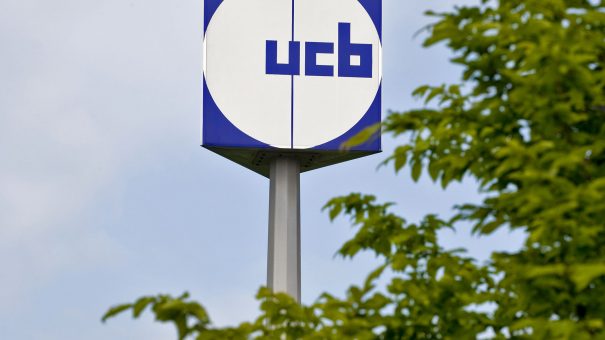UCB’s bimekizumab tops J&J’s Stelara in psoriasis study

The first phase 3 data with UCB’s key pipeline drug bimekizumab show that it hit all its efficacy targets in psoriasis – and performed better than Johnson & Johnson’s blockbuster rival Stelara.
Bimekizumab – an IL-17A and IL-17F inhibitor – outdid both placebo and IL-12/IL-23 blocker Stelara (ustekinumab) when it came to clearing the skin of patients with moderate-to-severe chronic plaque psoriasis and improving symptoms, says the Belgian biopharma company.
The importance of the positive readout to UCB can’t be overstated. Bimekizumab is prominent among a handful of pipeline programmes the company wants to bring to market before it loses patent protection for two blockbuster drugs – epilepsy treatment Vimpat (lacosamide) and immunology therapy Cimzia (certolizumab pegol) – by 2024.
UCB isn’t giving away much detail on the BE VIVID trial of bimekizumab just yet, but has revealed that its antibody was able to meet the two primary endpoints of at least a 90% improvement in the Psoriasis Area and Severity Index (PASI 90) and Investigator Global Assessment score of clear or almost clear skin (IGA 0/1) after 16 weeks.
It was better than Stelara in reaching PASI 90 and IGA 0/1 at that timepoint, and also topped placebo on the more stringent PASI 100 and IGA 0 measures, which represent completely clear skin. Patients in the study had at least 10% of their body covered with psoriasis at enrolment.
The trial provides “strong evidence that bimekizumab has the potential to raise the bar for achieving skin clearance rates for patients,” said lead investigator Mark Lebwohl of the Icahn School of Medicine at Mount Sinai, New York.
“Achieving clear skin is of critical importance in positively impacting the lives of psoriasis patients,” he added.
BE VIVID will follow patients for a year after starting treatment, so additional readouts will follow in the coming months.
Meanwhile it’s just one of a series of phase 3 trials UCB is running on bimekizumab, with additional data in psoriasis, psoriatic arthritis and ankylosing spondylitis due next year as UCB prepares to take on the challenge of entering a highly-competitive therapeutic category.
IL-17A inhibitors such as Novartis’ Cosentyx (secukinumab) and Eli Lilly’s Taltz (ixekizumab) – as well as IL-23 inhibitors like J&J’s Stelara follow-up Tremfya (guselkumab) and AbbVie’s recently-approved Skyrizi (risankizumab) – are already shifting treatment away from older TNF blockers.
That is down to higher skin clearance rates and also because they don’t have warnings for malignancy and infection and are viewed as safer to use than the TNF drugs, which include UCB’s own Cimzia product.
Meanwhile, orally-active JAK inhibitors, including Pfizer’s Xeljanz (tofacitinib) and AbbVie’s Rinvoq (upadacitinib), are also in trials for psoriasis, although concerns about thrombotic side effects might limit their uptake.
So far Xeljanz is approved for psoriatic arthritis only, as it was turned down by the FDA for the psoriasis, in addition to being used for rheumatoid arthritis.
UCB’s pitch is that targeting both IL-17A and IL-17F goes one step further as the latter is also a contributor to chronic tissue inflammation.
For now analysts aren’t wholly convinced, with sales predictions coming in at a modest $222 million in 2023, at a time when Cimzia is expected to be knocking on the door of €1.7 billion ($1.88 billion) in annual sales.
A lot will be riding on a head-to-head trial of bimekizumab and Cosentyx in psoriasis, due to read out next year, which will help determine whether the IL-17F activity makes a difference to clinical outcomes.












